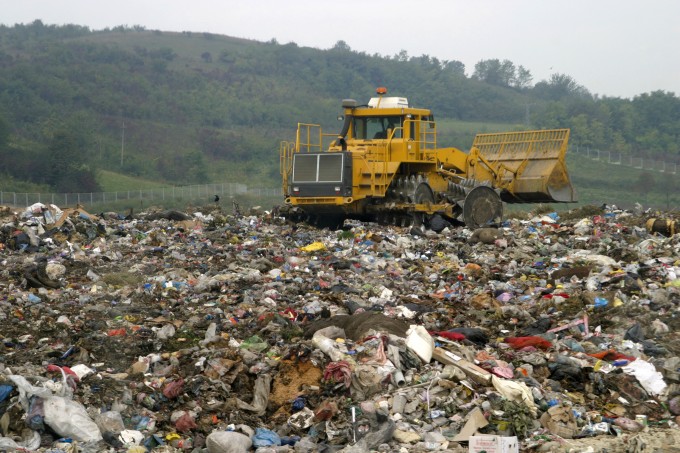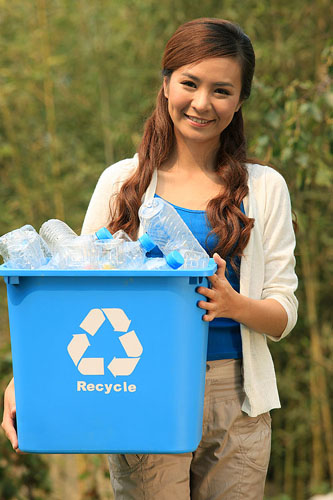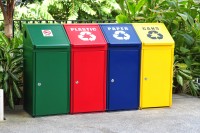ENSO Plastics recently had the opportunity to talk about some green topics with the “Go Green Guy”, Jeff Davis from Go Green America TV . As someone who is out there trying to educate and encourage people to live, and go green, we wanted to reach out to Jeff and see what his thoughts were on some topics that are relevant right now in our industry and field. ENSO Plastics shares a common goal with people like Jeff in that we want people to make the best decisions when it comes to environmental choices. We started off by just learning a little bit more about how Jeff got started in the “Go Green” movement:
Q: There are a lot of different reasons people get into the “Green Movement”, what motivated you to start your program,”Go Green America TV“?
Jeff: I was interested in finding some information for myself and my family. When I started searching for info on Green Living it just seemed so overwhelming. I thought there must be a better way to spread the word. So I started tweeting and blogging and before you know it “Go Green America TV” was born.
Q: That’s really great that something that started off as a personal goal turned into a much larger scale project of educating and providing information to others as to how they can go green as well. Now that your there, what is your goal with Go Green America? If there was something you could specifically achieve or a moment that would occur where you would sit back and say, “Man I’ve done it!”, what would that moment be or look like?
Jeff: My ultimate goal is to get “Go Green America TV” on television where I could reach millions. Daily I get interesting feedback from readers about how they enjoy what I am doing, for me that is it, knowing that I can effect people just by sharing what I learn, passing along information in such a way that it may just change they way people live their lives. I am not sure what the defining moment would be, but the little moments along the way will keep me going.
Q: Well we hope that you can achieve that goal! In regards to being on TV or how you run your program right now, you bring a lot of information to the table with your site and TV Channel, what is the biggest hurdle in trying to educate the public about green topics? What is the best way to go about getting the information to people?
Jeff: I think the biggest hurdle is finding an approach that people will actually take the time to listen to. There is so much Green washing out there that people are a little put off by the whole Green Living movement. I try to experience it with them, learn together and not be too much in your face. I want people to know that even the littlest things that we all do, make a difference.
I feel the best way to reach people is with video and I am in the process of finally getting that aspect of GGATV going.
Q: It is tough with the amount of Green Washing that has occurred, to keep people in the game and not be put off. One item of interest is plastic, and plastic usage is always a big deal, in packaging and with recycling, what is your overall impression of the environmental impact of plastics?
Jeff: It (plastic) has been a part of our lives for such a long time now it is difficult to just get rid of it. Recycling seems to be a key component in dealing with plastic but I still feel that the ultimate goal would be to reduce it’s use as much as possible. The trash factor, the landfill factor, the non biodegradable factor they all are a part of it, but sometimes we forget that plastics are petroleum based, love to see petroleum use cut when ever possible.
Q: There are a lot of factors involved in plastics, and specifically with plastic right now there is a lot of attention on plastic bags, specifically single use plastic bags, what is your take on it, what is the real solution, or is there one?
Jeff: I like the ban myself. I am not sure if it is the solution but I like it. Of all the single use items out there the plastic bag is the most widely used, the one that seems to get attention because it is easy to educate people on using reusable bags. People do tend to reuse plastic bags, but just for trash and they still end up in the trash can, they are one of the least likely items to be recycled.
Q: I agree with you in that I am also not sure it is the solution. It will be some time before we learn what kind of positive or negative impact the bag bans have. When you talk about ideas like using reusable bags, do you think we are we doing enough as people to go green? Even you personally do you feel there is always more and more you can do to be green but find difficulty in achieving all those goals?
Jeff: Are we doing enough? As long as we can get everyone to at least be conscious of there actions, hopefully it will be a cause and effect where they will make changes on there own. I think education is key, the more we understand why to live Green, the more people will make an effort. I myself know that I could always do more and I am striving to do so. It is a journey one step at a time, we just need to get as many people to start that journey as possible and the small steps will really make a difference
Q: On a global level there is a push to “Go Green”, even the Olympics this time around is trying to be as green as possible, and there is a lot of pressure for companies and brands to have “Green Initiatives”. From a global perspective what countries are really taking a lead with this, is the US in the lead?
Jeff: Globally I think that we are beginners when it comes to the environment. We’ve been the Global leaders in convenience, which is not a good thing. We have for the most part, become an unhealthy and somewhat lazy society. From what I can tell, England and many other European countries as well as Australia and Canada could teach us a lot about being environmentally responsible. I do think that we are finally catching on and hopefully catching up. We are finally educating people and a big part of that is just doing what we are doing right here, talking about it, sharing information, explaining why it is important.
We dropped the ball when Jimmy Carter tried to kick start the country down the right path and it wasn’t even called Green Living then. Solar panels, bio fuels, electric vehicles, we pushed them all aside and now we have to play catch up. I think we can do it!
I think we can too, and I think you have touched on something very important here. What really catches my attention here is when you said earlier, “the more we understand why to live Green, the more people will make an effort”. A lot of the time when I see a how to live green topic, blog or video it is simply that. It is at a high consumer level and sometimes it is effective and sometimes it is not. If though, we started focusing more on the “why” along with the “how” then I think more people would understand the importance of what it really means to “live” or “Go Green”.
Q: Thanks for your time Jeff, and we look forward to hearing from you in the future!
Jeff: It was a pleasure, thank you for taking the opportunity!
__________________________________________________________________________________________________________
To learn more about Jeff Davis and his “Go Green America TV” make sure you visit his site, gogreenamericatv.com and follow Jeff on twitter !









